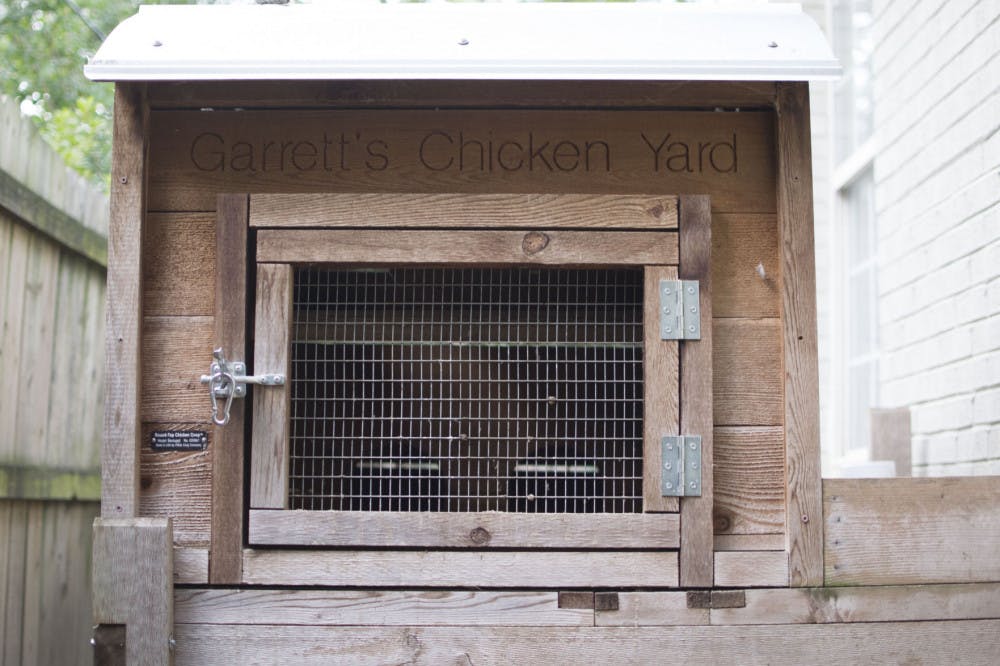Each morning, 11-year-old Caroline Garrett goes outside not to walk her dog, but to feed the three chickens her family owns and collect their eggs before going to school. Less than a mile away, Colton Cockrum performs the same chores as Caroline before going to work at the University of Memphis.
Over the past few years, more and more people have begun raising chickens in their backyard within the Memphis city limits. Roosters are not allowed because of the noise they generally create, but chickens are permitted so long as they have room to roam in an enclosed area and are provided with adequate food, water and shelter, according to the Memphis Code of Ordinances.
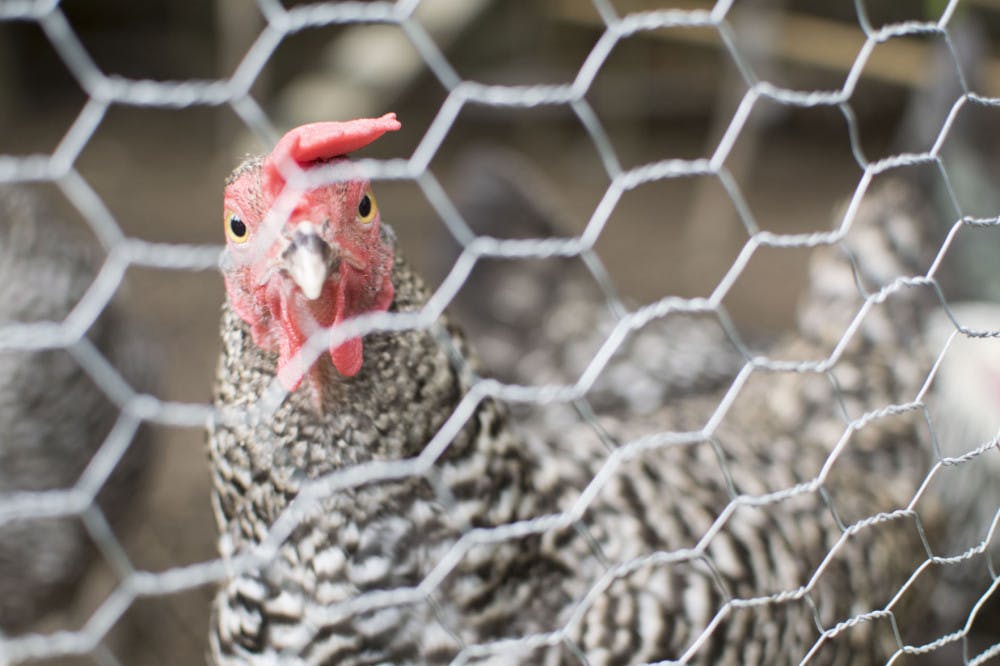
Barred Rock chickens, or more commonly just called “rocks,” are some of the most popular chickens amongst small farmers and families in the U.S. Colton Cockrum has multiple “rocks” in his flock along with other types of chickens such as Rhode Island Reds and Leghorns.
For some people, such as Caroline’s parents, Emilee and Kevin Garrett, raising chickens started as a simple, fun idea that stemmed from a practical joke.
“[Kevin] has a friend, and as a practical joke, they threw some chickens over the fence into the backyard one night,†Emilee said. “It turned out to be a lovely practical joke because then the chickens gave them these delicious eggs, and I thought, ‘That is so fun that they have these chickens in their backyard.’â€
A few months later, the Garretts bought and named their first chickens, and, by the time the chickens were six months old, they had begun laying eggs that the Garretts could gather to feed their family of five each day.
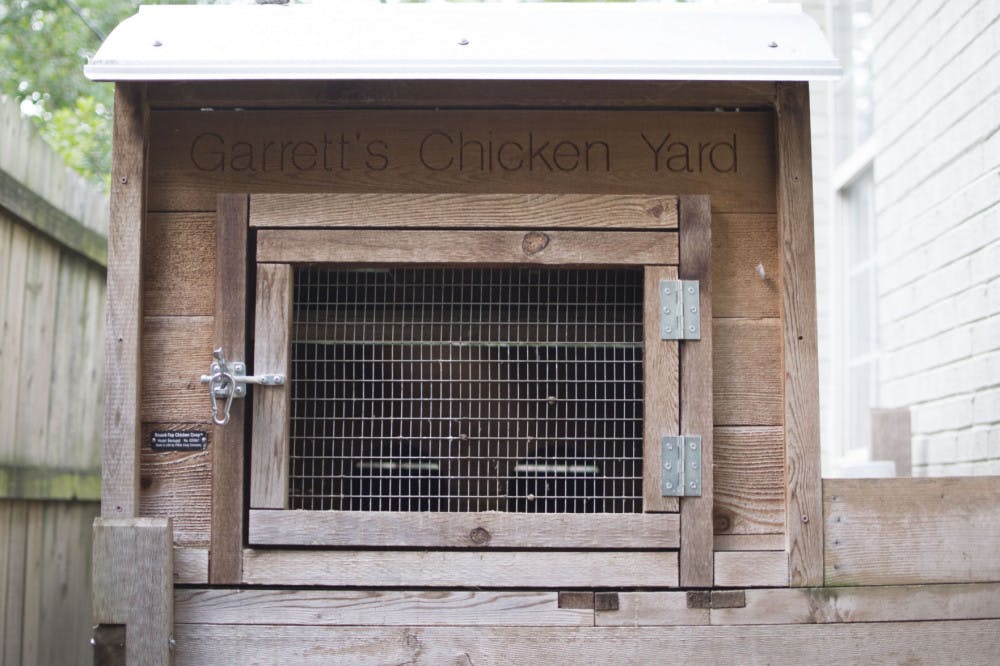
The Garretts bought their first chickens four years ago, and they even decided to invest in a personalized coop for them as well as part of the fun of raising chickens.
“It probably would have been a whole lot easier and a whole lot cheaper to just buy eggs at the grocery store,†Kevin, 39, said.
But despite the cost and work of owning chickens, knowing where their food comes from makes it worth it for the Garretts.
“I know that the egg was laid this morning,†Emilee said. “I don’t know how long a grocery store egg has been sitting in a hot truck out in the parking lot or what part of the country it came from. It could be four weeks old by the time I get it.â€
In fact, knowing where their food comes from is a large part of why many people decide to raise chickens.
“I grew up with produce at the grocery store,†said Grace Thompson, a Memphis native. “I never thought about where it came from or the work that went into [it] before it got to the shelves.â€
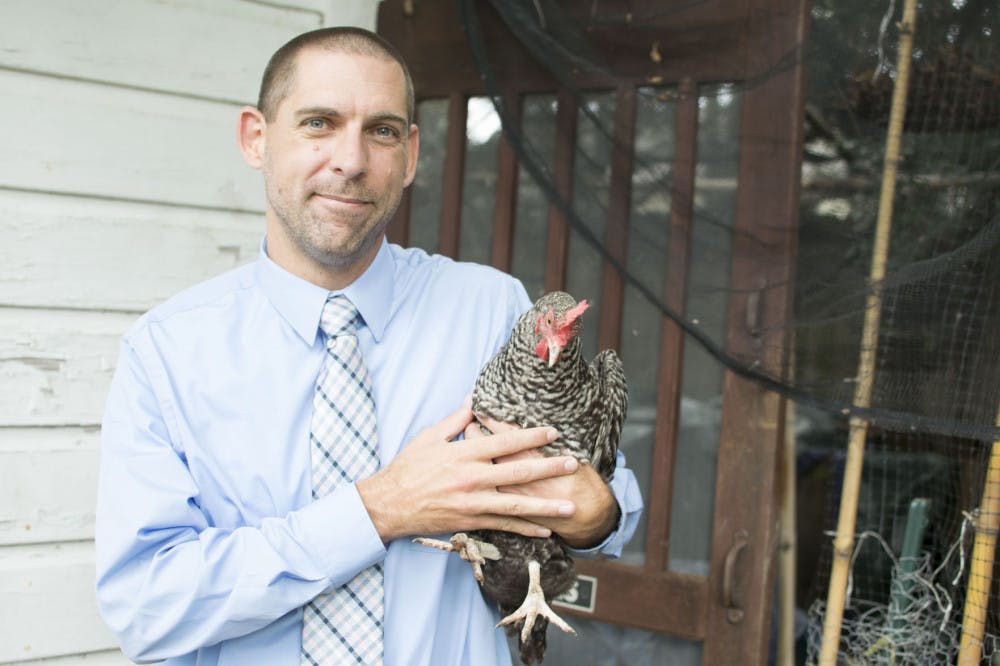
Colton Cockrum decided to get two chickens two years ago as a way to give back to his neighbors, and, since then, his flock has grown to include multiple hens that he considers his pets.
When the price of eggs started going up and the quality started going down about six years ago, Grace’s husband, Rob, decided that the family should start providing their own eggs—not only for the quality of the eggs, but also for their four children.
“We have loved it for teaching our children not only chores but where food comes from,†Grace said. “We don’t live on a farm, but it’s an easy way of getting them into the mentality of gathering eggs that we can eat… [and] realiz[ing] where eggs come from.â€
For others like Colton Cockrum, raising chickens is a way to provide not only for his family but also for those around him.
Cockrum, originally from a rural area in Oklahoma, was never interested in farm life like his mother and sister as he was growing up. But two years ago, he decided to get into the chicken business as well, buying two chickens and a coop to put in his backyard to provide for his family of four and his neighbors in Memphis.
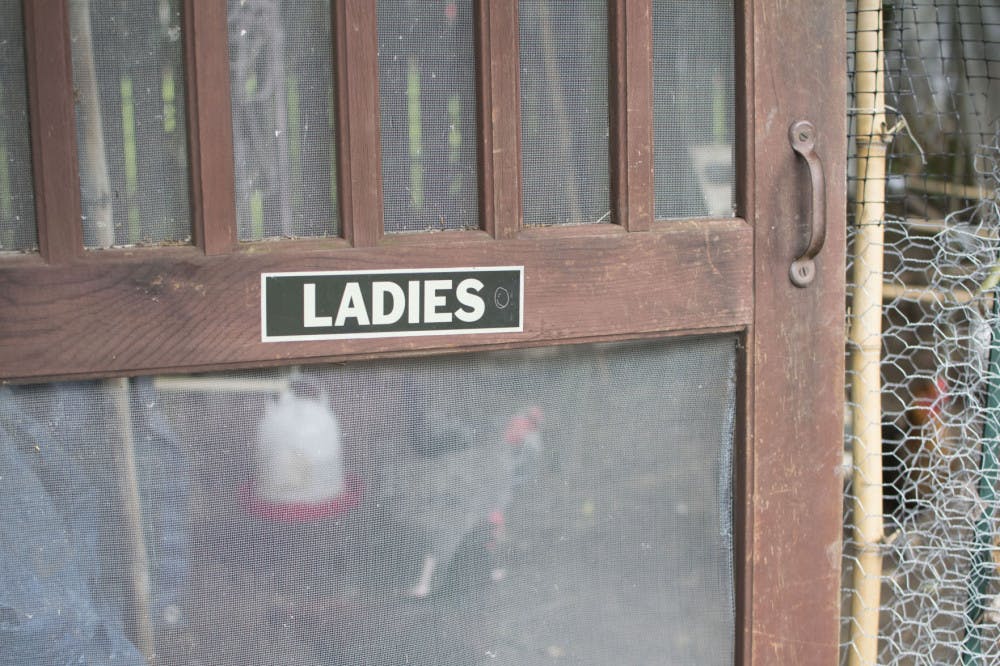
Colton Cockrum has a special area set up in his backyard for the “ladies” of his house, the multiple hens he owns, complete with coops and a bamboo pole for roosting.
“I thought, you know, it’d be really cool to have chickens and have eggs for my family but also be able to provide eggs for the people around me—it’d be a cool way to love on them,†Cockrum said.
Now, two years later, he could not imagine not having chickens.
“My dream someday is to have 10 to 15 acres where they have a confined space that’s safe for them at night… but then during the day they could roam several acres of land,†Cockrum said.
Since buying his first chickens two years ago, Cockrum has become a staunch advocate for raising chickens, saying that more people would have chickens if they realized the benefits and how easy they are to keep.
“You could have three or four chickens and all the eggs you need,†Cockrum said. “You’re able to have eggs, and you know what the chickens are eating and how they’re being raised, how they’re living.â€
If knowing where the food comes from was not enough for these families, the quality of the eggs would be.
“Everyone that I give eggs to says they can [tell a difference],†Cockrum said. “As long as I have chickens, I’m not buying [eggs.]â€

